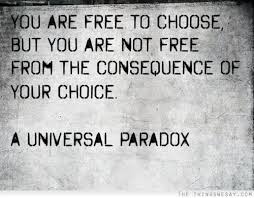The Paradox of Choice
Author: James Kole
To put it simply, the paradox of choice states that the more choices one is given when making a decision, the less happy they tend to be about the decision they make (even if the selection is objectively better). This is driven by many factors, namely:
- 1. Additional effort and psychological stress associated with evaluating multiple options
- 2. Increased opportunity cost(the way in which we value things depends on what we compare them to. It’s thus easier to imagine the attractive features of rejected options, the features we did NOT choose)
- 3. Greater “buyer’s remorse” (with so many alternatives, it’s easier to imagine how another choice would have been better)
- 4. Increased expectations from options (“with 87 options I have to find the perfect option for me”)
- 5. Finally, we are more likely to blame ourselves when our choices don’t meet our expectations (“I had all these options, it’s obviously my fault, I should have picked better” vs. “I was only presented with 2 options, not enough to make the right decision”)

What’s interesting about the paradox of choice is that it doesn’t discriminate much. We struggle with important decisions like buying a new home, finding the right wife or husband, or picking health care plans. This is understandable. But the little things give us stress as well. Finding the perfect toothpaste can’t be that important, can it? The brain, in other words, doesn’t do a good job of realizing what’s at stake when we decide.
In the book The Paradox of Choice by Barry Schwartz, the author describes his research into two groups of people, Maximizers and Satisficers.
- 1. Maximizers are those who only accept the best. Every time they make a purchase (or do anything else, for that matter), they need to be sure they’ve made the best decision possible. When shopping for shoes, for example, a Maximizer wants to look at all of the options. She wants to compare of the prices. And even after she’s made her purchase, she worries that maybe she missed a better shoe or a better price at another store.
- 2. Satisficers, on the other hand, have learned that, contrary to conventional wisdom, good enough often is. Satisficers have learned to settle for something other than the best. A Satisficer still has expectations and standards, but once she’s found something that meets those standards, she buys it. When shopping for shoes, a Satisficer makes do with a pair that meets her needs at a price she can afford.
Many Maximizers believe that Satisficers are comfortable with mediocrity. That’s not necessarily true. Satisficers are just as interested in quality as Maximizers — but they’re not willing to spend the extra time moving from “excellent” to “best”.
The problem with perfect
As you might guess, Maximizers are not as happy as Satisficers. In his research, Schwartz has found that:
- Maximizers are more likely to regret their purchases despite the fact that they have (in theory, at least) come closer than Satisficers to making the best decision.
- On the flip side, Satisficers generally feel more positive about their purchases. They know they’ve made a choice that met their expectations.
- Maximizers enjoy positive events less than Satisficers, and they don’t cope as well with negative events.
Maximizing and satisficing have important implications in the world of personal finance. Researchers have found, for example, that when an employer increases the number of options for retirement savings, the likelihood that employees will actually save for retirement goes down. Similarly, you could spend a lot of time searching for the bank with the best CD rates or the mutual fund with the best returns. Soon, though, something better would come along and you’d be unhappy. For most people, it makes more sense to make a good choice and stick with it.
While it’s true that some choice is a good thing, too much is not. It’s easy to pick the best option from a pool of three, but it’s difficult to find the perfect choice in a pool of thirty. The truth is “perfect” is a moving target. It’s nearly impossible to hit. It’s better to make a solid decision today than a perfect decision next week.
– See more at: http://www.webzeest.com/article/588/the-paradox-of-choice
Article Source: http://www.articlesbase.com/psychology-articles/the-paradox-of-choice-6716813.html
About the Author
Co Founder of webzeest.com. I love researching and writing about science, history, art and psychology theories. You can connect with me at webzeest.com





